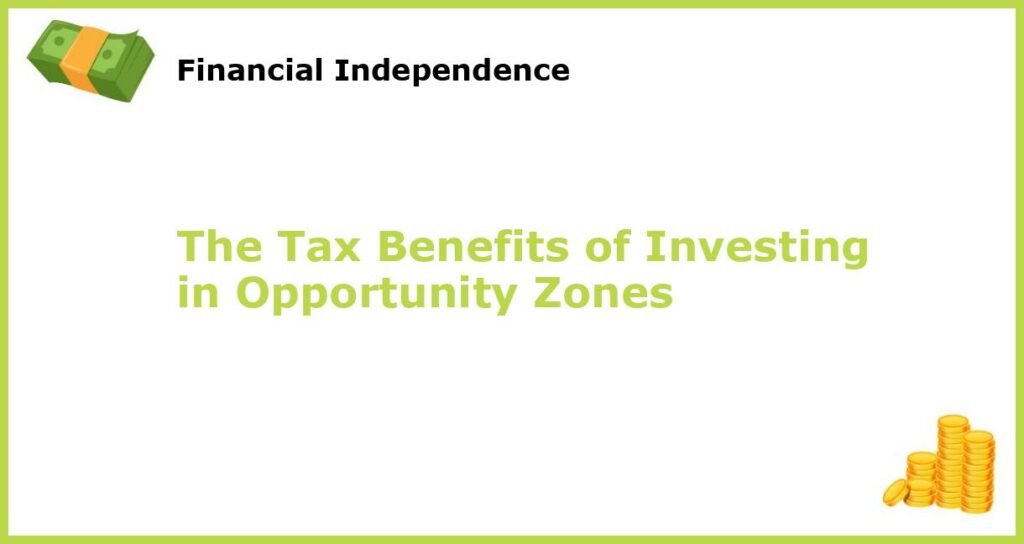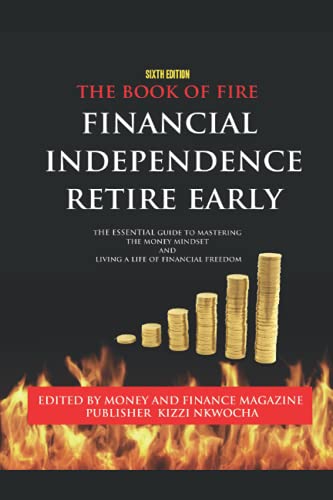Are you looking for a way to save on taxes while also investing in areas that need a boost? Look no further than Opportunity Zones. These designated areas across the United States offer significant tax incentives for investors, while also helping to spur economic growth and development in underdeveloped communities. With over 8,700 Opportunity Zones to choose from and a variety of investment options, investing in Opportunity Zones can provide a lucrative and fulfilling investment opportunity.
Opportunity Zones Offer Tax Deferment on Capital Gains

One of the biggest incentives of investing in Opportunity Zones is the tax deferment on capital gains. Investors who invest in an Opportunity Zone can defer payment of capital gains taxes until 2026 or until the asset is sold (whichever comes first). This can help investors avoid immediate tax liabilities while providing flexibility in managing their investment portfolio. For investors looking to avoid or minimize capital gains tax, investing in Opportunity Zones can provide an excellent opportunity to save on taxes while also investing in underdeveloped areas.
Investors Can Enjoy Tax-Free Growth on Opportunity Zone Investments

Another significant benefit of investing in Opportunity Zones is the potential for tax-free growth on investments. Investors who hold their investment for at least 10 years can receive tax-free gains on their investment. As a result, investors can realize significant savings over time and a sizeable return on investment. For investors looking for a way to save on taxes while also enjoying long-term growth potential, investing in Opportunity Zones can be an excellent option.
Investors Have Control in Opportunity Zones

Investing in Opportunity Zones also provides investors with a sense of control over their investments. They can choose to structure and manage their investment in a way that aligns with their goals and values, while also having a say in how the money is used within the community. This sense of ownership and pride in the investment can create a stronger community partnership and help contribute to the economic growth and development of underdeveloped areas.
Investing in Opportunity Zones Can Have a Positive Impact on Underdeveloped Areas

Opportunity Zones are designated in areas that are economically distressed, meaning they have lower income levels and higher unemployment rates. Investing in these areas can help stimulate economic growth and development, provide jobs and training opportunities for local residents, and contribute to a stronger and more diverse economy. For investors looking to make a positive impact while also realizing financial gains, investing in Opportunity Zones can be a win-win proposition.
Opportunity Zones Offer Diverse Investment Opportunities

Opportunity Zones offer a range of investment options, including real estate development, infrastructure projects, and operating businesses. This allows investors to choose the type of investment that best aligns with their financial goals and risk tolerance. For investors looking for a way to diversify their investment portfolio while also saving on taxes, investing in Opportunity Zones can provide an excellent opportunity.
Greater Access to Investment Capital in Opportunity Zones
Opportunity Zones also attract investment capital from institutional and private investors who may not have considered investing in these underdeveloped areas previously. This influx of capital can help create a more robust and diverse economy in these areas, helping to spur new businesses, job opportunities, and community development. For investors looking to be part of a growing and dynamic community while also enjoying tax benefits, investing in Opportunity Zones can be an excellent option.
Streamlined Investment Process in Opportunity Zones
Investing in Opportunity Zones is also made easier by the streamlined investment process. This is due to clear guidelines and regulations for investors, which reduces uncertainty and allows investors to focus on their investment strategy and goals. For investors looking for a simple and straightforward investment opportunity, Opportunity Zones can provide a welcome relief from the complexities of other investment options.
Opportunity Zones are Attractive to Foreign Investors
The Opportunity Zone program is also attractive to foreign investors looking to gain a foothold in the US market. Investing in Opportunity Zones can provide a way for these investors to access the US market while also receiving tax benefits. As a result, investing in Opportunity Zones can be an excellent way to expand a portfolio and take advantage of new opportunities.
Long-Term Investment Strategy Required in Opportunity Zones
Finally, investing in Opportunity Zones requires a long-term investment strategy, with a minimum investment period of 10 years. While this may be a downside for investors looking for short-term gains, it encourages investors to think beyond immediate financial gains and instead focus on long-term growth and development. For investors looking for a way to save money, promote social good, and earn long-term financial gains, investing in Opportunity Zones can be a wise investment choice.







